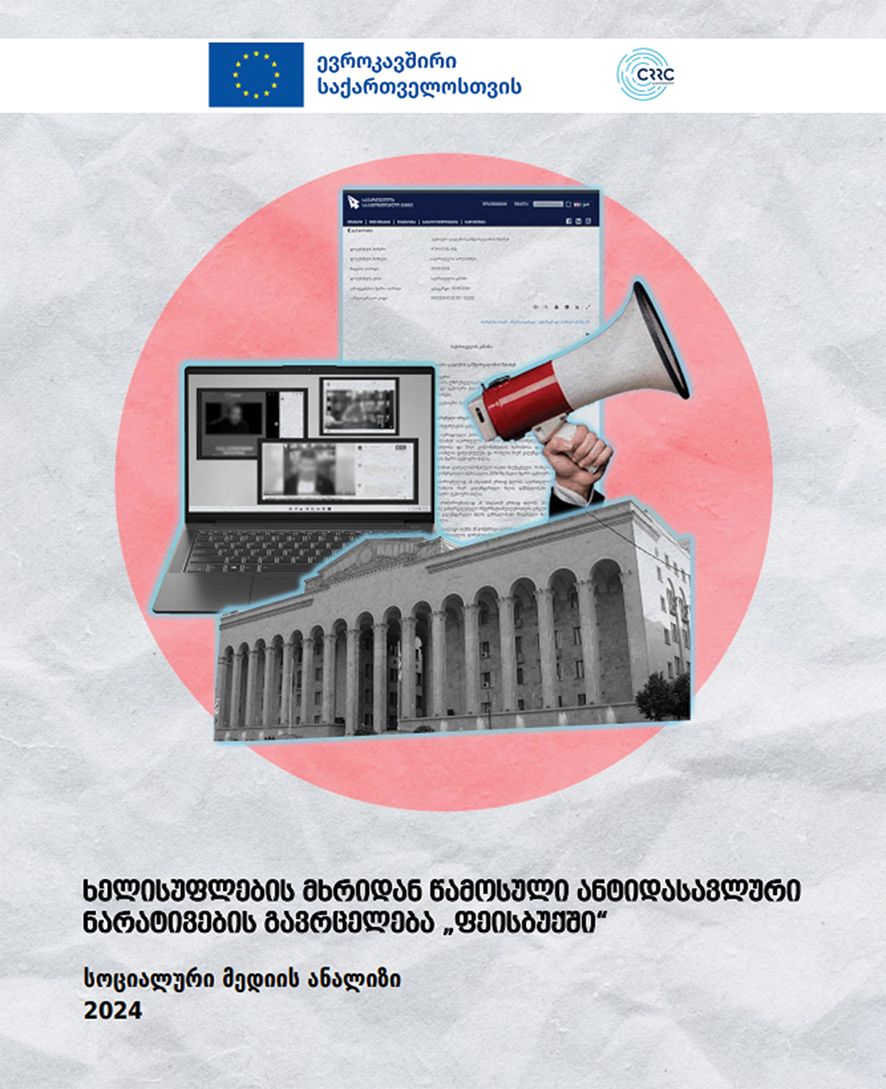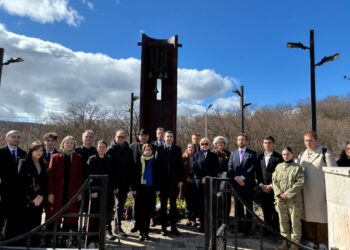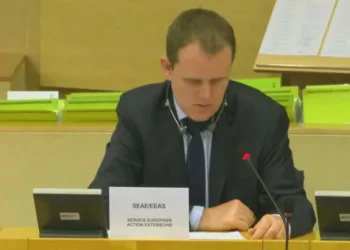Koba Turmanidze, director of the Caucasus Research Resource Center* spoke to us about Georgian Dream’s political approaches and what we can expect from this weekend’s elections.
How has the economic development of Georgia been during the rule of the Georgian Dream party?
The economy of the country is doing ok, it is growing. Last year, we had about 7% growth, which is a big deal for such a small country as Georgia. But this doesn’t mean that people are necessarily living better, because, in addition to the economic growth, we have very big economic inequality: the wealth in the country is not distributed equally, not even close to equally. Wealth normally gets to the top few per cent of the population, while a significant part of the population lives in poverty. This is why the country has a significant migration of individuals, especially of young people.
We are losing both our workforce and the future engine for democracy. This is the situation that was created under Georgian Dream’s rule, and these conditions hold significance for the upcoming election.
Who do you think will win the election this weekend?
It is still difficult to say. Lots of individuals are still undecided and are trying to make up their minds and choose between a few opposition forces and the ruling party. This is how we Georgians approach elections. A lot of people have not yet decided, and we may have some surprising results.
How has the situation with emigration changed?
The trend has been upward for the past few years. Annual numbers of emigrants are growing. That’s a bad sign. People are unhappy about the economic hardship in Georgia. The economy as a whole is not suffering, but the economic wealth has not been distributed fairly, and this is why people are trying to find better places to live. There just aren’t opportunities for young people here. Jobs have not been created, especially for young people, to bring in a good enough income. At the same time, there are easier and bigger opportunities to be found by going to the European countries and staying there. The combination of these two factors has increased the emigration of Georgians significantly.
How rich or poor is Georgian society right now?
About 20% of the population is living below the poverty line. One thing is poverty, another is dependency on the state. We have an aging population, and a big part of it is on the state pension, or getting social aid, which is another form of state dependency. When you have a big segment of the population so dependent on the state, it is hard to achieve a big economic breakthrough. On top of that, you have emigration of younger cohorts.

What would you describe as poor in Georgian terms?
We have an old system. Poor people means that people don’t have monetary income, and they cannot feed themselves. Those people get social aid. Social aid is survival money, not a substantial amount, about 60 GEL per month. It is symbolic aid to very poor families. Usually, they have some monetary income, but they try to hide it in order not to lose their aid.
Are people happy with the ruling party or not?
The Georgian Dream supporters see a lot of the world through their party’s lens, i.e. in much better terms than those who are not party supporters. You will see that their supporters are happier with Georgian Dream’s policies. Their supporters believe that Georgian Dream is a pro-European party and is taking our country to the European Union. This is what Georgian Dream is telling voters. But, of course, the opposition supporters look at the situation in a dramatically different way.
Many people say: “We will vote for GD, as they guarantee us peace, but our pensions are too low.”
Yes. This is a problem right now. People tend not to think about the social and economic issues, but they may decide to depend on invented problems. For example, they see peace, but it is not because Georgian Dream established peace: this how Georgia would be no matter who was in power. It does not mean that if Georgian Dream loses, there will be a war, which is how they are having the situation portrayed to them. The unfortunate reality of this is that the Georgian Dream campaign is not about real-life issues, but about made-up issues and propaganda.
Is the opposition addressing the concerns of the people about everyday life?
Well, all the opposition parties have powerful words right now; they say things, promise things, come up with programs and ideas. They are promising a lot, but the issue is credibility. We are used to a lot of promises from all parties, including the ruling party, that just don’t get fulfilled. Yes, the opposition is trying to address those issues. There could be a problem of credibility, though, as words are cheap, as we know.
The ruling party planned to get more votes by passing its anti-LGBT law. Does that resonate with Georgian society?
It’s hard to say. Georgian Dream would have won these elections easily if they hadn’t passed the “Russian law,” which they call the foreign influence transparency law, and if they hadn’t raised the question about the LGBTQ+ community at all. They were doing fine; they had achieved EU candidate status; the economy is doing well enough, and, as they say, we have peace. They could have attributed these positive things to themselves and won without contest. But they started initiating a law which most of the population didn’t like- not saying that people are overwhelmingly against the LGBT law, but it doesn’t matter that much to them. And to compensate for this dissatisfaction, especially with the Russian law, which really upset a significant part of the population, they started making up war scenarios that evolved into anti-EU and anti-LGBT rhetoric. They deliberately shifted the focus from real life and tangible things that no one can dispute, like the EU candidate status, economic benefits, better social protection of individuals, to things that are hard to see, measure and even understand, inventing the “global war party” which is “fighting against us”; inventing that Western countries are pushing us to attack Russia and to open a second front. There is no evidence for that, and no reason to mobilize their supporters around issues that don’t matter and which cannot improve people`s lives at all, because they simply don’t exist.
Why did they do it?
It is a mystery, especially seeing as they had a clear path to another four years in power. In early spring, they just started making enemies out of nowhere.
Will the introduction of the “Russian law,” if implemented, affect a lot of people?
Despite government power and propaganda, in our surveys, the ruling party never achieved the majority for this law. They want this law to at least control civil society and to eliminate troublemakers and to control the foreign money which comes into these organizations. And this is clearly a Russian approach.
What role does the Church play in this situation?
From our surveys, we clearly see that the Church is the most trusted institution. Because of the high trust in the Church and the Patriarch, the Church’s attitudes, whether directly or indirectly expressed, are important to Georgia’s believers. The Church is powerful, and at the same time smart not to put all its eggs into one basket. They are playing a smart political game by not showing their support for any one political force, as they want to get the best deal possible.
* * *
*Koba Turmanidze has been working for CRRC-Georgia since 2007. He holds a Ph.D. in Comparative Politics from Central European University. CRRC-Georgia is a non-governmental, non-profit research organization which collects, analyzes and publishes policy relevant data on social, economic and political trends in Georgia. CRRC-Georgia, together with CRRC-Armenia and CRRC-Azerbaijan, constitutes a network of research centers with the common goal of strengthening social science research and public policy analysis in the South Caucasus.
The three centers were established in 2003 by the Eurasia Partnership Foundation (EPF) with financial support from the Carnegie Corporation of New York. In 2013, CRRC-Georgia and CRRC-Armenia were registered as independent non-commercial legal entities.
Interview by Tatjana Montik














